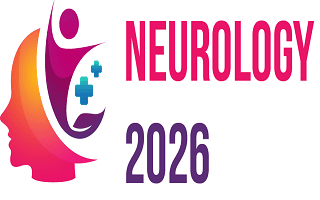4th International Conference on
Neurology & Neurological Disorders
October 15-16, 2026 | Paris, France

Address: Zone Hoteliere 2 Allee Du Verger Roissy En France, 95700, Paris, France
Neurology 2026

Addenbrookes Hospital, Cambridge, UK
Abstract:
Neurocysticercosis (NCC), a parasitic brain infection caused by larval form of Taenia solium, can mimic eclampsia during pregnancy or the postpartum period, posing a significant diagnostic challenge.
This case report describes a 28-year-old primigravida who developed postpartum seizures following an emergency caesarean section for foetal distress. Initially presenting with signs of preeclampsia, she was treated with magnesium sulfate (MgSO₄) and antiepileptics under the assumption of eclampsia. Despite appropriate therapy, seizures persisted, prompting further investigation.
As laboratory evaluations were normal and clinical symptoms unresponsive, MRI of the brain was conducted. The scan revealed multiple ring-enhancing lesions with perilesional edema, suggestive of NCC. The diagnosis was confirmed by a positive EITB serological test. Treatment was adjusted to include dexamethasone, levetiracetam, and albendazole. The patient responded well, with seizure resolution and clinical improvement, and was discharged with plans for continued anti-epileptic and anti-parasitic therapy alongside neurology follow-up.
This case highlights the need for clinicians to reconsider diagnoses when standard eclampsia treatment fails. In regions where T. solium is endemic, NCC should be included in the differential diagnosis for postpartum seizures. MRI remains the diagnostic modality of choice in such atypical presentations. Early recognition and appropriate treatment with anti-helminthic, anti-inflammatory agents, and antiepileptics are crucial for preventing morbidity.
The case underscores the importance of maintaining a broad diagnostic perspective in managing postpartum seizures to ensure timely and effective intervention.
Biography:
Jayesh Singh, MBChB is a dedicated resident doctor currently practicing at Addenbrooke’s Hospital in Cambridge. He completed his medical degree at the University of Buckingham, England. He did an elective placement as a medical student in SHKM Government Medical College, Haryana, India where he also looked after critically ill patients in ICU. As a Foundation year trainee he developed a keen interest in internal medicine and global healthcare through evidence-based medicine to promote better health outcomes across diverse populations around the globe.
